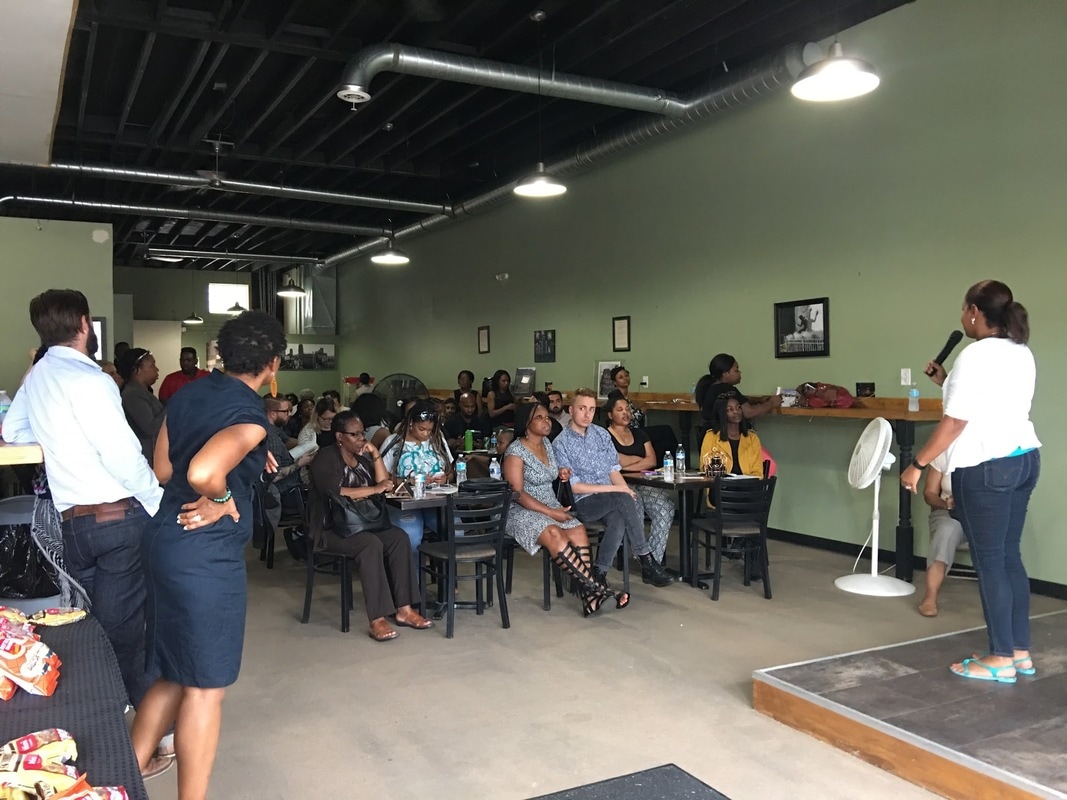When I hear the phrase “social entrepreneurship” I think of the innovation and work done towards a community oriented goal. Not entrepreneurship that is done to increase the wealth of a few individual’s pockets but entrepreneurship that is achieved to help improve the situation of all. When I hear the word “entrepreneurship” by itself, I think of successful businessmen such as Steve Jobs, Bill Gates or Detroit’s Henry Ford that created revolutionizing products and services. However, these inventions only benefited a relatively wealthy category of the population and the founder accumulated billions of dollars. In my opinion, social entrepreneurship is more focused on improving the good of the general population. The profit made needs to be redistributed in some way to the community.
In the world we live in with increasing inequalities, social entrepreneurship is essential to help certain neighborhood grow economically and socially. Economically, the neighborhoods will have more services, shops, products that can add to the economic value of the area. Socially, this type of entrepreneurship can create new links and reinforce already existing connections. Social entrepreneurship is especially necessary for areas that are not the wealthiest. This is the case for Detroit where I have observed a very high number of these social initiatives.
This summer I am working with Build Institute, a non-profit small business incubator located in Mexican Town. For me, Build Institute embodies the definition of social entrepreneurship. First, the company is a non-profit meaning that when its revenue exceeds its expenses, it needs to reinvest this profit into its main goal. Build Institute provides classes to individuals with a business idea to teach them the necessary skills to create and maintain a business. Moreover, classes are priced on an affordable, sliding scale based on annual household income and family size. Thus, the costs range from $200 – $500 making it accessible to anyone who has an innovative idea and strong motivation. In addition, Build Institute has many different programs and services that can help entrepreneurs connect with other people, have access to loans and grants, and expose their new products and services at pop up expositions. In terms of Build Institute’s impact in the community, it has graduated over 1000 aspiring entrepreneurs with 85% of them who are low to moderate income. These graduates have come from over 100 zip codes in metro Detroit and have greatly helped their communities by creating new products and services. This is for me, the true meaning of social entrepreneurship.
In the world we live in with increasing inequalities, social entrepreneurship is essential to help certain neighborhood grow economically and socially. Economically, the neighborhoods will have more services, shops, products that can add to the economic value of the area. Socially, this type of entrepreneurship can create new links and reinforce already existing connections. Social entrepreneurship is especially necessary for areas that are not the wealthiest. This is the case for Detroit where I have observed a very high number of these social initiatives.
This summer I am working with Build Institute, a non-profit small business incubator located in Mexican Town. For me, Build Institute embodies the definition of social entrepreneurship. First, the company is a non-profit meaning that when its revenue exceeds its expenses, it needs to reinvest this profit into its main goal. Build Institute provides classes to individuals with a business idea to teach them the necessary skills to create and maintain a business. Moreover, classes are priced on an affordable, sliding scale based on annual household income and family size. Thus, the costs range from $200 – $500 making it accessible to anyone who has an innovative idea and strong motivation. In addition, Build Institute has many different programs and services that can help entrepreneurs connect with other people, have access to loans and grants, and expose their new products and services at pop up expositions. In terms of Build Institute’s impact in the community, it has graduated over 1000 aspiring entrepreneurs with 85% of them who are low to moderate income. These graduates have come from over 100 zip codes in metro Detroit and have greatly helped their communities by creating new products and services. This is for me, the true meaning of social entrepreneurship.

 RSS Feed
RSS Feed
